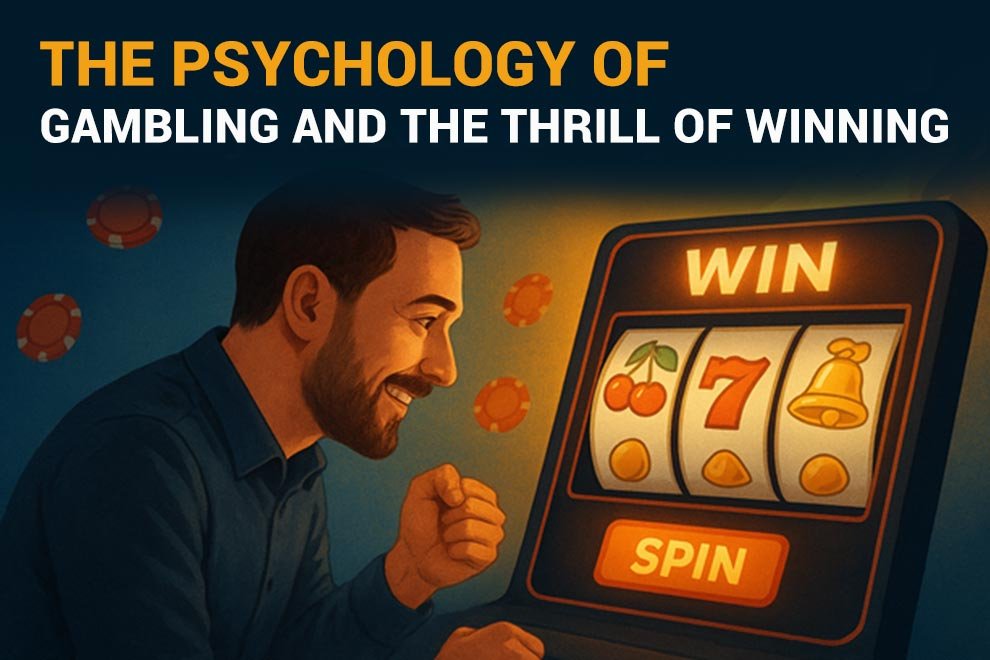Gambling has been part of human culture for thousands of years, from ancient dice games to modern online slots. While the formats and technologies have evolved, the reasons we are drawn to gambling remain deeply rooted in human psychology. The mix of excitement, uncertainty, and the possibility of winning taps into primal instincts and emotional triggers that keep people coming back for more.
Today, online casinos and platforms have taken this age-old fascination and combined it with cutting-edge design and accessibility. Understanding the psychology behind gambling not only helps explain its appeal but also offers insights into responsible play.
The Thrill of Uncertainty
At the heart of gambling lies uncertainty. Every bet carries the potential for both loss and reward, and it is this unpredictability that triggers our brain’s reward system. Psychologists often link gambling behavior to the dopamine release that occurs when anticipating a potential win.
Unlike guaranteed rewards, uncertain rewards tend to be even more exciting. This is known as variable reinforcement, a principle observed in behavioral psychology where unpredictable outcomes keep people more engaged than consistent ones. Slot machines, roulette, and card games all make use of this principle to sustain player interest.
The Dopamine Effect
When a gambler places a bet, their brain releases dopamine, the “feel-good” neurotransmitter associated with pleasure and reward. Interestingly, dopamine is not just released when a win occurs but also in anticipation of the win. This means that even near-misses can create a rush, motivating players to continue.
Players seeking a trusted and exciting place to enjoy that dopamine-fueled thrill often choose Aladin138 for its fair games and engaging experiences.
This anticipation effect explains why people can spend long sessions at a game, even when winning infrequently. The possibility of a large win acts as a constant motivator, stimulating the same neural pathways involved in other rewarding activities like eating or exercising.
Social and Cultural Influences
Gambling is not purely an individual activity. In many cultures, it is tied to social events, festivals, or traditions. The communal aspect of gambling whether in a casino, at a card table, or online chatroom can make it more appealing.
Online casinos have replicated this through live dealer games, multiplayer poker rooms, and community jackpots. Players are no longer isolated; they share the excitement, celebrate wins together, and engage in friendly competition. This social interaction adds another psychological layer to the appeal.
The Allure of Winning
Winning money is an obvious draw, but it’s not the only reward people seek. Victories in gambling often bring a sense of skill, mastery, or validation, even when chance plays a major role. For games that involve strategy, such as poker or blackjack, the sense of outsmarting opponents or the house can be even more satisfying.
Furthermore, even small wins can feel disproportionately rewarding due to loss aversion the psychological bias where people fear losses more than they value equivalent gains. A small win can erase the emotional impact of a series of losses, motivating players to keep going.
The Role of Near-Misses
Near-misses, where the outcome is just short of a win, are particularly powerful psychological triggers. In slot machines, for example, seeing two jackpot symbols and a third just one space away can create a surge of excitement almost equal to winning.
Research shows that near-misses activate similar brain regions as actual wins, convincing the player that they were “close” and encouraging continued play. Game designers understand this effect and often build it into their mechanics.
Escapism and Mood Regulation
For many people, gambling serves as a form of escape from everyday stress. The immersive nature of games bright visuals, engaging sound effects, and continuous action can draw attention away from real-world concerns.
This aspect can be both positive and negative. On one hand, it provides relaxation and entertainment; on the other, it can become a coping mechanism for stress or boredom, leading to excessive play. Responsible gambling tools and self-awareness are key in managing this balance.
How Online Casinos Use Psychology Responsibly
While the psychology of gambling can be used to enhance engagement, responsible platforms ensure these elements are balanced with tools to promote healthy play. Features like deposit limits, time reminders, and easy access to account history help players stay in control.
- Platforms such as these demonstrate that the entertainment value of gambling can coexist with responsible gaming practices. By offering fair games, transparent rules, and support for players, such platforms build trust while still delivering an exciting experience.
The Impact of Personal Differences
Not all players are motivated by the same psychological triggers. Some seek the thrill of high-risk bets, while others enjoy slow-paced strategy games. Factors that influence gambling preferences include:
- Personality traits, such as risk tolerance
- Past experiences with winning or losing
- Cultural attitudes toward gambling
- Financial goals or entertainment budgets
Understanding one’s motivations can help players choose games that match their interests and playing style.
The Role of Rewards Beyond Money
Many online casinos now offer loyalty programs, bonuses, and non-monetary rewards to keep players engaged. These can include free spins, exclusive access to tournaments, or collectible items in gamified environments.
Such rewards appeal to the human desire for achievement and progress. Even when money isn’t involved, these perks can encourage continued play by tapping into our goal-oriented nature.
Responsible Enjoyment of Gambling
The psychology that makes gambling so enjoyable can also make it addictive for some people. The same reward systems that create excitement can lead to compulsive play if left unchecked. Recognizing warning signs such as chasing losses, playing with money meant for other expenses, or feeling anxious when not playing is essential.
Casinos have a responsibility to provide support for players who may be at risk. Many platforms include self-exclusion options, links to help organizations, and clear information on how to gamble responsibly. Players who understand the psychological pull of gambling can better manage their habits and maintain it as a fun activity rather than a harmful one.
The Future of Gambling Psychology
As online gambling continues to evolve, so too will the understanding of player psychology. Advances in technology will allow for more personalized gaming experiences, where platforms can adapt to a player’s style, preferences, and limits in real time.
Artificial intelligence and data analysis can be used to detect problematic patterns early and provide timely interventions. On the other hand, these same tools can make games more engaging than ever, deepening the psychological connection between player and game.
Final Thoughts
The love of gambling is a complex mix of excitement, hope, social connection, and personal challenge. From the dopamine rush of anticipation to the satisfaction of a win, the experience engages multiple layers of human psychology.
Modern platforms, including Aladin138, recognize these motivations and aim to provide environments where players can enjoy the thrill while staying in control. By understanding the psychological factors at play, both players and operators can ensure that gambling remains a source of entertainment rather than harm.
The more we understand why we love to play and win, the better we can design, choose, and enjoy games in a way that balances excitement with responsibility.
Also Read: The Role of Machine Learning in Detecting Problem Gambling










